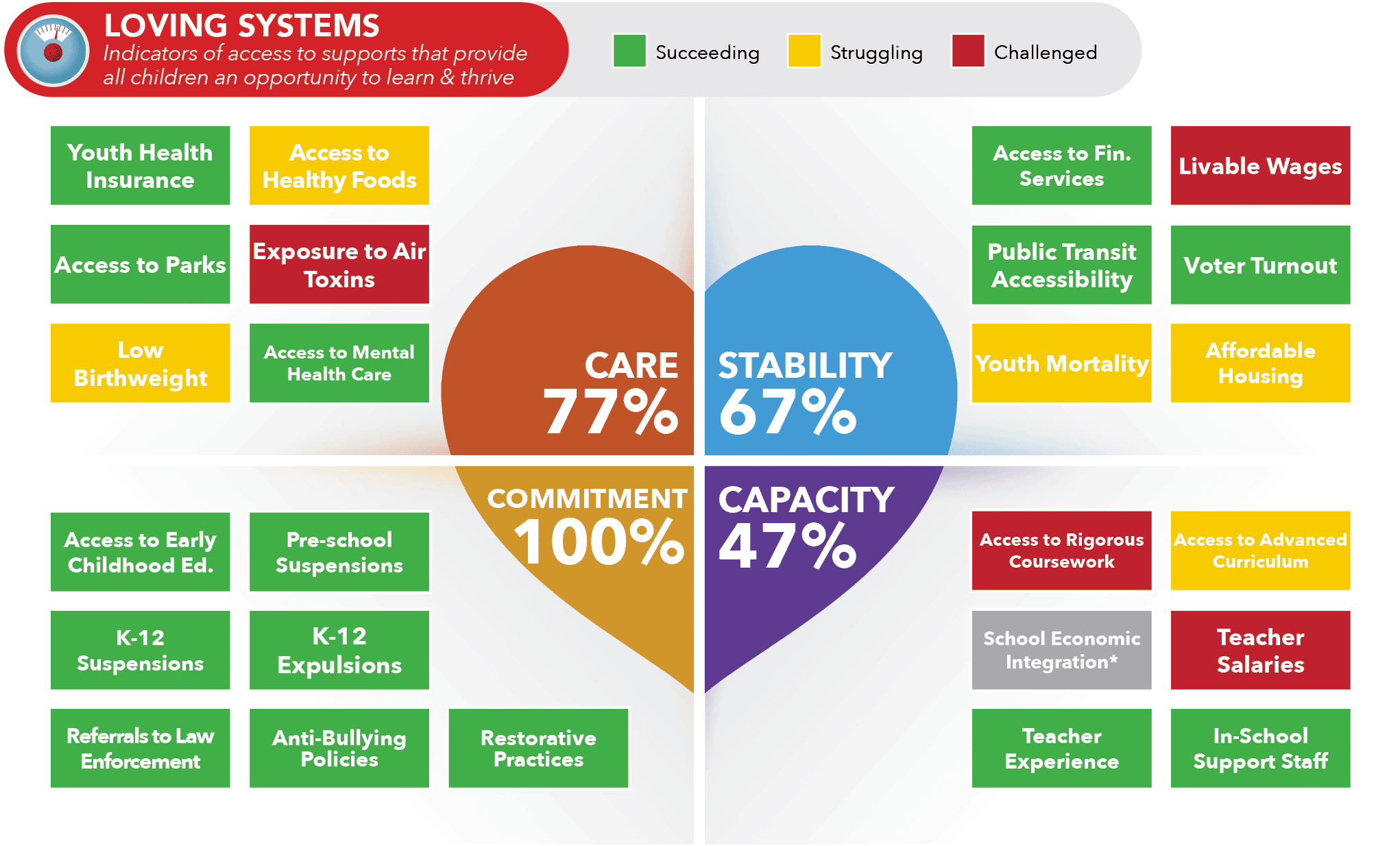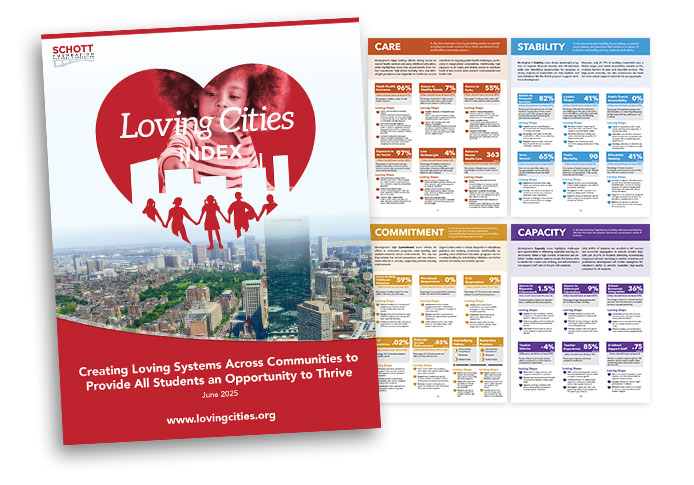Boston is a national leader in education, innovation, and civic participation. With a population of more than 650,000 residents and a legacy of progressivism, the city blends its deep historical roots with a forward-looking commitment to equity and opportunity. Boston’s diverse neighborhoods, top-tier universities, and globally renowned healthcare institutions position it as a model for inclusive urban development.


of supports measured
Boston’s investments in equitable education, housing, and public health are reflected in its Loving Cities Gold designation—achieved through cross-sector collaboration and policies that prioritize student well-being, civic empowerment, and community resilience.
The city’s robust support systems, combined with strong infrastructure and engaged residents, are helping to create an environment where all children and families can thrive.
Boston’s chamber scores demonstrate both success and areas of continued focus: Its Care score reflects strong health coverage, access to parks and food, and a growing focus on mental health and environmental justice. Boston’s Stability score underscores high civic engagement and transit access, with opportunities to improve wage equity and housing affordability. A perfect Commitment score highlights Boston’s exceptional work in early childhood access and equitable school discipline. Its Capacity score points to experienced educators and strong support staffing, with room to grow in academic access and teacher compensation.
As Boston continues to invest in community-driven solutions, it sets a high bar for what’s possible when equity is prioritized across systems.
Expand to read more
Boston demonstrates measurable strengths and ongoing opportunities across educational, health, and economic indicators. City-led initiatives continue to support efforts to improve outcomes and reduce disparities across these domains. Boston’s educational attainment is notably high, with 54.99% of adults holding an associate degree or higher, surpassing the national average. This reflects the city’s longstanding investment in postsecondary access through initiatives like Success Boston, a collaborative that partners with local high schools, higher education institutions, and nonprofit organizations to support first-generation and low-income students through graduation.
Boston’s high school graduation rate is 81%, slightly below the national average. Boston Public Schools (BPS) has expanded student support through its Office of Secondary Schools and strengthened partnerships with re-engagement centers and mentorship programs aimed at increasing on-time graduation.
Unemployment in Boston is 4.36%, slightly above the national rate. The city addresses workforce access through Boston Career Centers, which provide job search assistance, career coaching, and industry-specific training. Boston’s Office of Workforce Development also supports targeted employment pathways in healthcare, clean energy, and technology.
21.18% of children live below the federal poverty line. Boston has implemented multiple strategies to address child poverty, including the Boston Tax Help Coalition, which helps families maximize tax credits like the Earned Income Tax Credit (EITC), and the Childcare Entrepreneur Fund, which supports family-based providers in expanding access to affordable childcare.
Boston Indicators

The Community Climate comprises indicators of a city’s current conditions in important areas such as education, economic stability, and public health. While these indicators do not uncover underlying supports or influences in a city, the outcomes provide a picture of a community’s well-being, economic mobility, and equitable opportunities.

*Indicator data unavailable due to universal free lunch program


